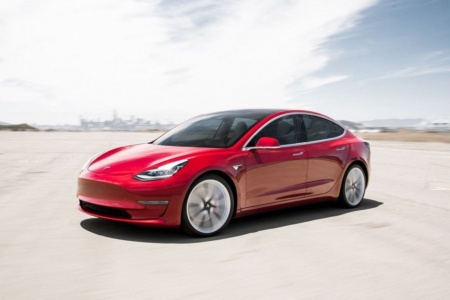
A judge has ordered Tesla to update the customer’s self-driving car computer for free so he can sign up for the Full Self-Driving program at no additional cost. That’s a win for customers frustrated that Tesla was selling a self-driving package before the company actually delivered a fully functioning feature.
Tesla has claimed that all of its cars built since 2016 have “all the necessary hardware” to become self-driving with future software updates. The company still needs to deliver on that promise and has actually had to update the hardware of cars built after 2016. In particular, Tesla had to update the on-board computer that runs the software for autonomous driving. The new computer is known as a Hardware 3.0 or FSD computer.
To fulfill its promise in 2016 that future cars would have “all the necessary hardware” to become self-driving, Tesla offered a free computer upgrade to owners who ordered the Full Self-Driving package.
The fact that Tesla made the upgrade free of charge allayed people’s fears about having to upgrade their hardware to access self-driving.
Course
CFO
Become an experienced director-level finance specialist!
REGISTER!
However, last year Tesla launched a Full Self-Driving subscription package for $199 per month. This allowed car owners to forego the one-time purchase of the Full Self-Driving package, which currently costs $15,000. The problem is that for owners who did not have a full self-driving computer upgrade, Tesla asked to pay $1,500 for the computer (later reduced to $1,000) before they can issue a monthly FSD subscription.
Some car owners believed that this approach contradicted Tesla’s claims that cars produced since 2016 have all the necessary equipment for self-driving. One of them, Ian Jordan, decided to file a complaint in small claims court in Washington state.
His Model 3 car was equipped with a version 2.5 computer and Tesla wanted to charge him $1,000 to upgrade the computer to version 3.0 before he could subscribe to FSD. Jordan filed a complaint in court and won the case, and Tesla did not even come to court to defend its interests. At the same time, the judge actually admitted Jordan’s evidence, in which he called Tesla’s statements “false advertising.”
It should be noted that this is the first lawsuit filed against Tesla in connection with its advertising of “fully autonomous driving”. In September, Tesla car owners filed a class-action lawsuit against the automaker for “misleading the public about Autopilot technology and Fully Self-Driving (FSD) features.” The company recently filed a motion to dismiss the lawsuit because it believes “the failure to realize a long-term desired goal does not constitute fraud.”
Interestingly, Ian Jordan has filed a separate lawsuit against the company over the loss of functionality in his other Tesla car that was equipped with the original MCU1 media unit. Even though it was still under warranty, Tesla said it could not fix the problem and instead recommended a paid upgrade to a new generation media computer (MCU 2).
The judge ruled that this was a breach of warranty and ordered Tesla to pay Jordan $1,657.50 — the cost of switching to a new computer. He even ordered a $500 payout to compensate for the loss of the AM radio, as Tesla’s decision to upgrade to a new computer resulted in the loss of that feature, which is absent from the MCU 2.
In parallel with lawsuits from customers, the US Ministry of Justice is conducting its own investigation into Tesla’s promises. Also in August 2021, the US National Highway Traffic Safety Administration opened an investigation into a series of accidents – one of which was fatal (when a Tesla equipped with Autopilot crashed into parked ambulances). Administration officials stepped up their investigation in June, which covers 830,000 Tesla vehicles with Autopilot and 16 accidents involving electric vehicles, as well as stationary emergency response and road service vehicles.
Source: electrek




